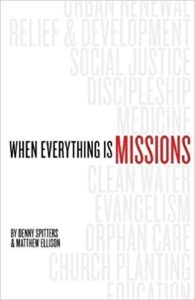This list is not meant to assess the thousands of Christian books published each year, let alone every interesting book published in 2017. I read a lot of books, but there are plenty of worthy titles that I never touch (and never hear of). This is simply a list of the books (Christian and non-Christian, but all non-fiction) that I thought were the best in the past year.
When I say “best” I have several questions in mind:
• Was this book well written and enjoyable to read?
• Did I find it personally challenging, illuminating, edifying, or entertaining?
• Is it a book I am likely to reread or consult often?
• Do I see myself frequently recommending this book to others?
Undoubtedly, the “best” books reflect my interests and inklings. This doesn’t mean I agree with every point in all these books, but it does mean I found them helpful and insightful.
One important change from previous years: the ten books are not ranked in any kind of order; they are simply listed alphabetically by author.
- James Dolezal, All That Is In God: Evangelical Theology and the Challenge of Classical Christian Theism (Reformation Heritage Books). “The chief problem I address in this work,” writes Dolezal, “is the abandonment of God’s simplicity and of the infinite pure actuality of His being” (xiii). That may sound terribly technical, but the issues Dolezal raises have huge ramifications for the doctrine of God and what it means to relate to the God who does not change.
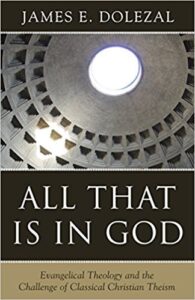
- Douglas J. Douma, The Presbyterian Philosopher: The Authorized Biography of Gordon H. Clark (Wipf and Stock). Using a hefty dose of archival sources, Douma does an admirable job helping us understand Gordon Clark the man, not just his ideas. For someone that few people still talk about, Clark played a crucial role in the development (and divergence) of 20th-century Reformed theology and the burgeoning neo-evangelical movement.
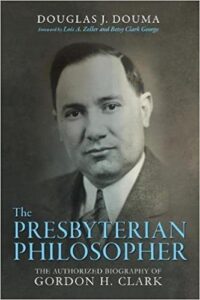
- Alan Jacobs, How to Think: A Survival Guide for a World at Odds (Currency). Jacobs writes well and means to help us think well, arguing that we can actually learn to be less lazy and more thoughtful. A fast, fascinating, and useful read.
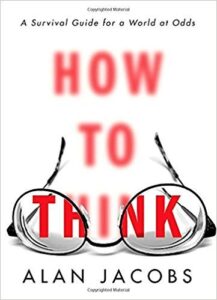
- Arnold Kling, The Three Languages of Politics: Talking Across the Political Divide (Cato Institute). Another short book filled with plenty of illustrative material. Kling maintains that progressives, conservatives, and libertarians often talk past each other because they each see the world through one particular moral lens: oppressor-oppressed (progressive), civilization-barbarism (conservative), or liberty-coercion (libertarianism).
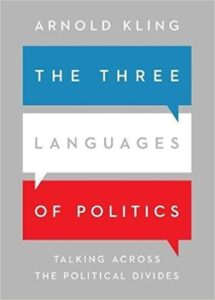
- Michael J. Kruger, Christianity at the Crossroads: How the Second Century Shaped the Future of the Church (SPCK). While many books deal with the first century and the historical Jesus, and other books deal with church fathers and doctrinal heresies in the third, fourth, and fifth centuries, there are fewer books that cover the crucial second century. Kruger fills the gap with a mid-level textbook that manages to serve students and still be accessible to interested lay people.
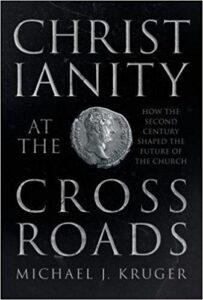
- Gideon Mailer, John Witherspoon’s American Revolution (UNC Press). Okay, so you’re going to find this book more interesting if you are doing doctoral work on John Witherspoon. But even if you don’t want 400 pages of detailed analysis on Witherspoon’s relationship to the Enlightenment, Augustine, and the founding of America, it’s still an important book, not least of which because it pokes holes in the received narrative that Witherspoon was a confused thinker who threw off evangelical orthodoxy when he crossed the Atlantic.
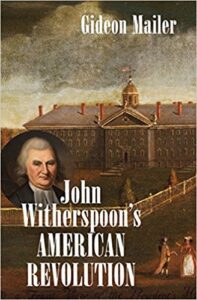
- David Murray, Reset: Living a Grace-Paced Life in a Burnout Culture (Crossway). I’ve already started to use this book with our elders, and I have recommended it often. Murray is unflinchingly honest and eminently practical. I hope to read back through the book again and share it with my wife.
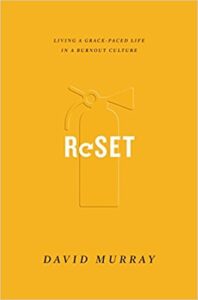
- Tom Nichols, The Death of Expertise: The Campaign Against Established Knowledge and Why It Matters (Oxford). This is not a book long rant against ordinary rubes and common folk. Nichols is well aware that experts are part of the problem. His aim is to bridge the gap between experts and laypeople. A functioning Republic depends on the former serving the latter and expects the latter to pay some deference to the former. To act as if no one knows more than anyone else is not only silly, it’s also a serious mistake.
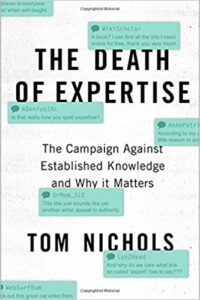
- Fred Sanders and Scott R. Swain, eds., Retrieving Eternal Generation (Zondervan). With contributions from top notch scholars like Lewis Ayres and Chad Van Dixhoorn, this book takes an impressive looks at a neglected doctrine. Every orthodox Christian confesses that Christ is “begotten, not created,” but what does that mean, and why does it matter? This book tries to answer those questions. The chapters by D. A. Carson on John 5:26 and Lee Irons on monogenes were particularly illuminating.
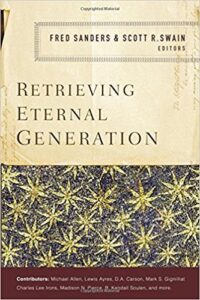
- Denny Spitters and Matthew Ellison, When Everything Is Missions (Bottom Line Media). The theme of the book is simple, provocative. and timely: we are not all missionaries and not everything is missions, and if we don’t get these definitions correct we will not be effective in carrying out the mission Christ gave to the church.
